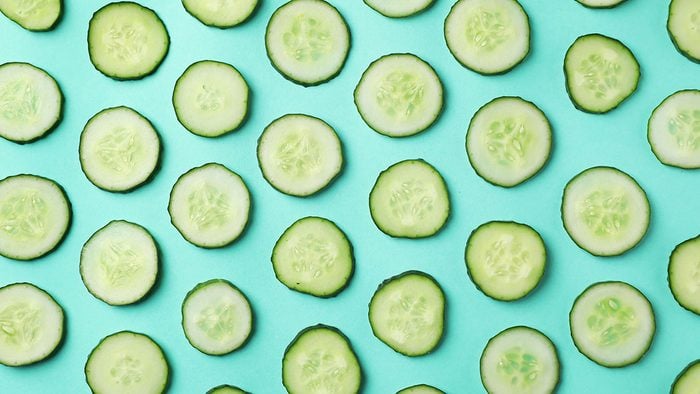
High-fibre and antioxidant-rich vegetables
All veggies are good for you. They are high in vitamins, phytonutrients, antioxidants, and fibre and are generally low in calories and low in fat. But certain varieties do contain FODMAPs, or rapidly fermentable carbohydrates that can aggravate your gut, that are difficult for some people to digest. Our plan focuses only on low-FODMAP veggies, especially those rich in anti-inflammatory magnesium and other important minerals. Leafy green veggies (kale, Swiss chard, spinach), bell peppers, cucumbers, eggplant, tomatoes, and potatoes are all good examples. Check out some other foods that are good for your belly.
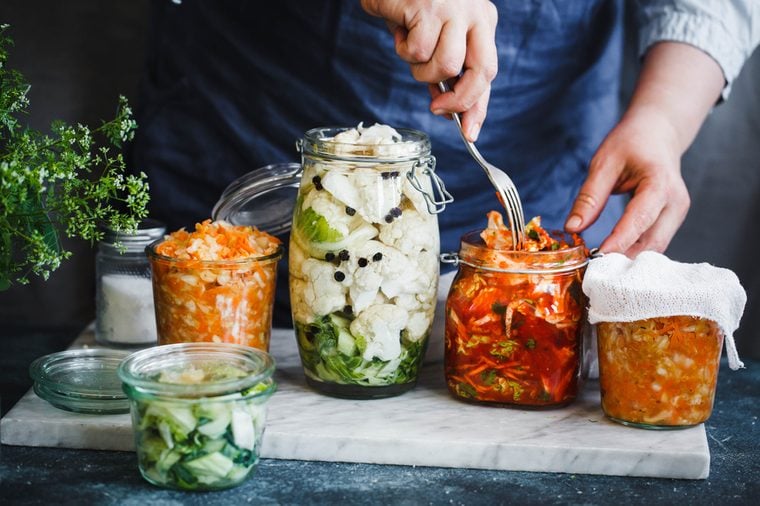
Fermented veggies
Fermented foods as a whole are good for your gut, since the fermentation process helps boost the foods’ probiotics. Eating probiotic-rich foods helps boost the good bacteria in your digestive system while helping to eliminate the bad stuff. Sauerkraut, a fermented mix of cabbage and other veggies, is pretty much a stomach superfood. Consider purchasing fermented vegetables, or just fermenting them yourself—here’s a guide. Sauerkraut, carrots, green beans, beets, and kimchi are all great to start with.
Here are some more of the best probiotic foods for a healthy gut.
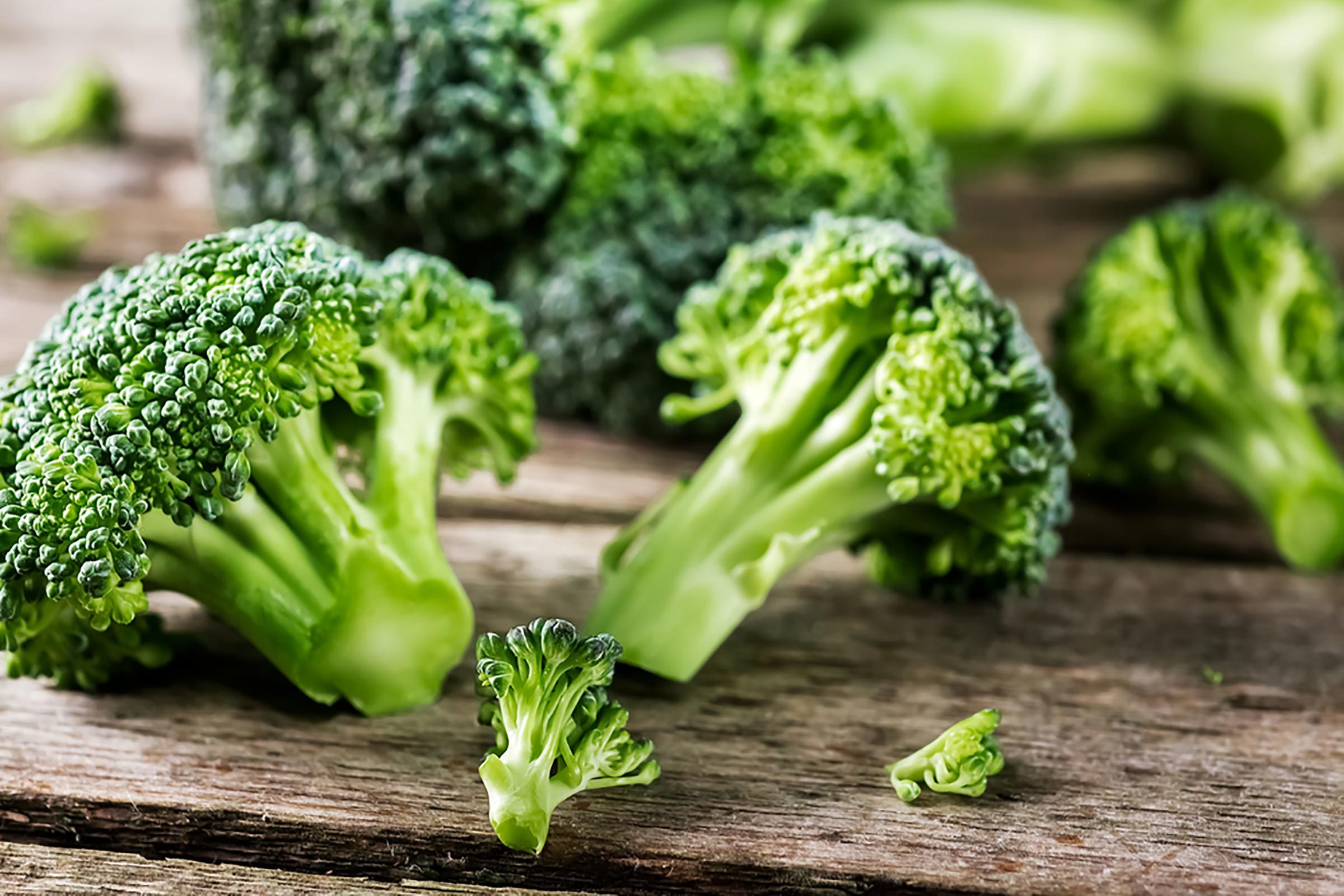
Cruciferous veggies
This group of veggies, also known as the Brassicaceae family, is packed with nutritious benefits for your whole body, tummy included. They’re loaded with antioxidants, and they contain a powerhouse chemical called Sulforaphane that can help fight bad gut bacteria, helping to prevent stomach ulcers and even cancer. Kale, cabbage, cauliflower, and broccoli are good examples.
Find out the proper way to rid your veggies free of pesticides.
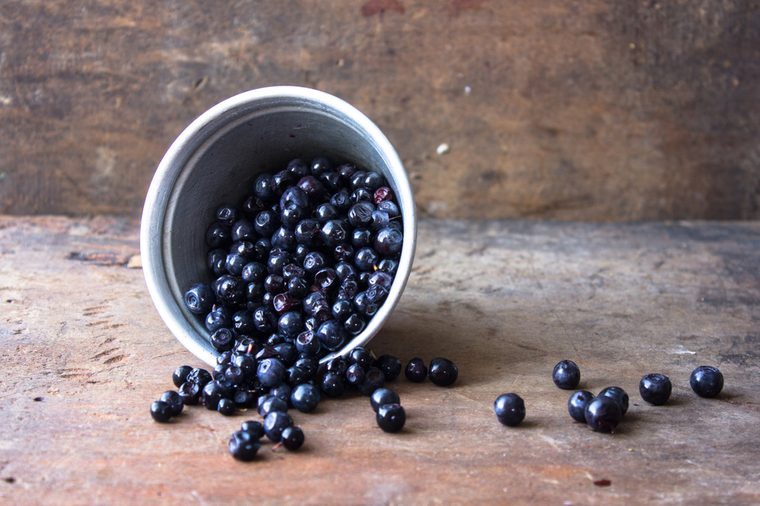
Tummy-trimming fruits
Many sweet fruits have a balanced glucose-to-fructose ratio, which may be easier on your gut than those with more fructose. Try some bananas and blueberries, cantaloupe and honeydew, grapes, oranges, pineapple, papaya, strawberries, raspberries.
Ever tried maqui berry? Here’s everything you need to know about this superfruit.
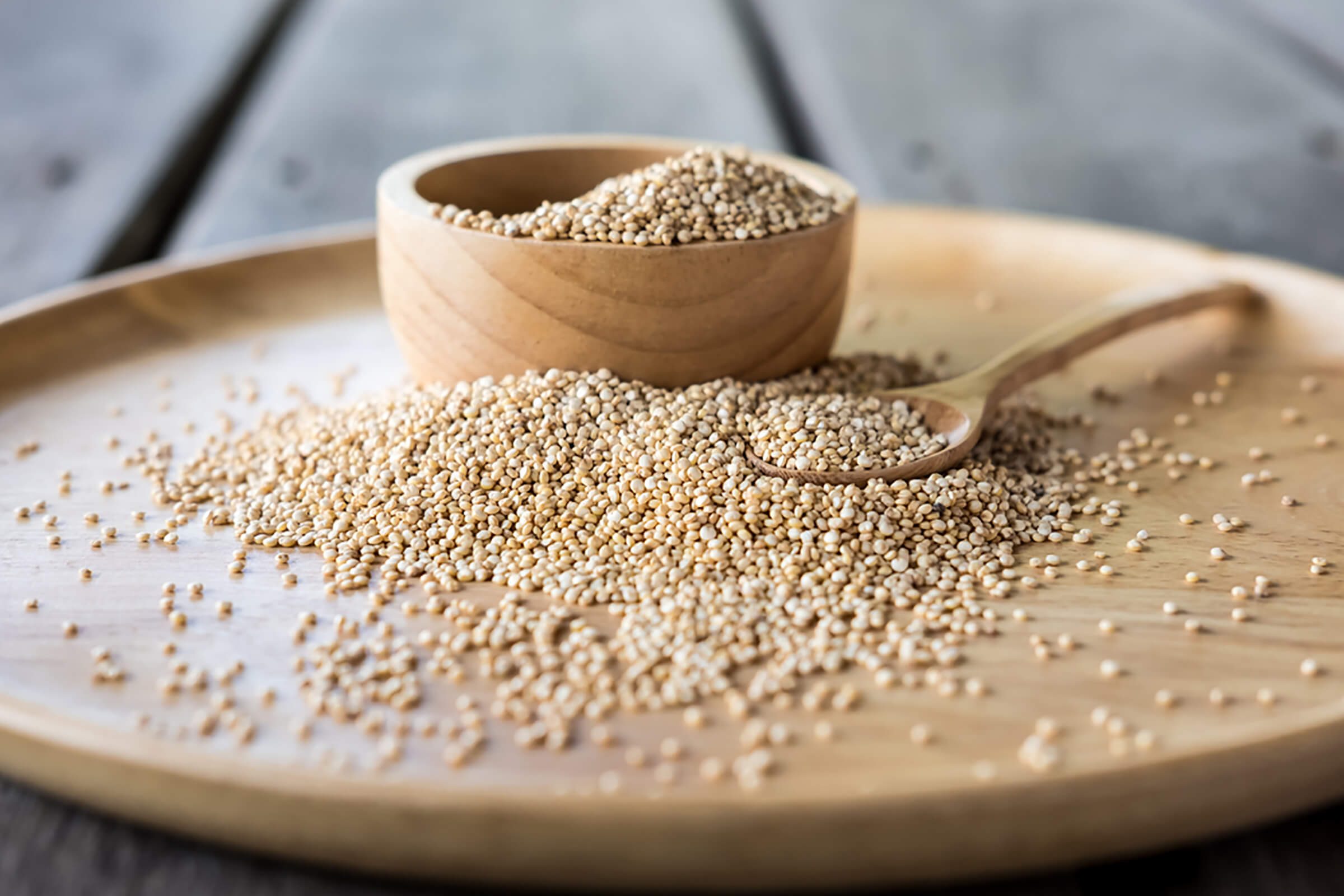
Carb-light grains
Almost all grains are carb-dense and therefore may be bad for your tummy. Many, like wheat, are also high in FODMAPs. But since grains are such powerful (and delicious) sources of fibre, we included those that are high-fibre, low-FODMAP, and relatively carb-light. Cook up some meals using quinoa (like these vegan burgers), oats, or brown rice.
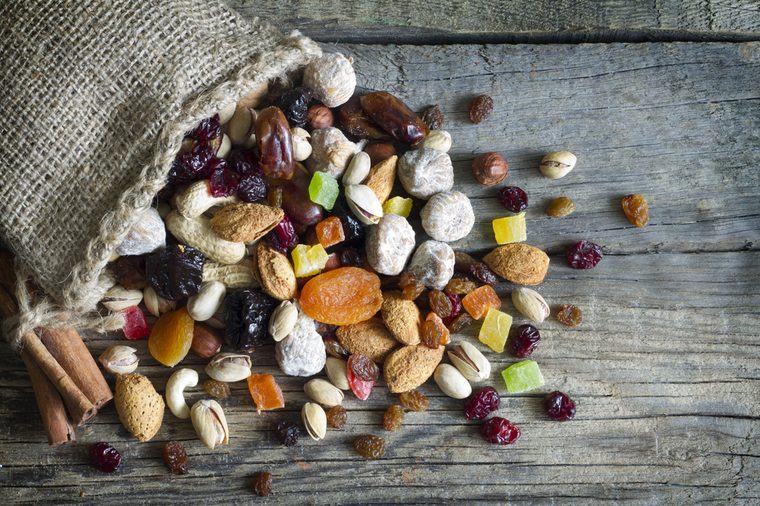
Nuts, seeds, and nut butters
Nuts and seeds are great sources of energizing protein, low-fermentable (read: belly-soothing) fibre, and anti-inflammatory fats. But some nuts contain FODMAPs, so stick to this list. Nut butters made from these are also great options. Mix in some almonds, hazelnuts, macadamia nuts, peanuts, pecans, pine nuts, walnuts, chia seeds, flaxseeds, pumpkin seeds, sesame seeds, or sunflower seeds into your diet. (This sunflower seed butter might forever change how you snack.)
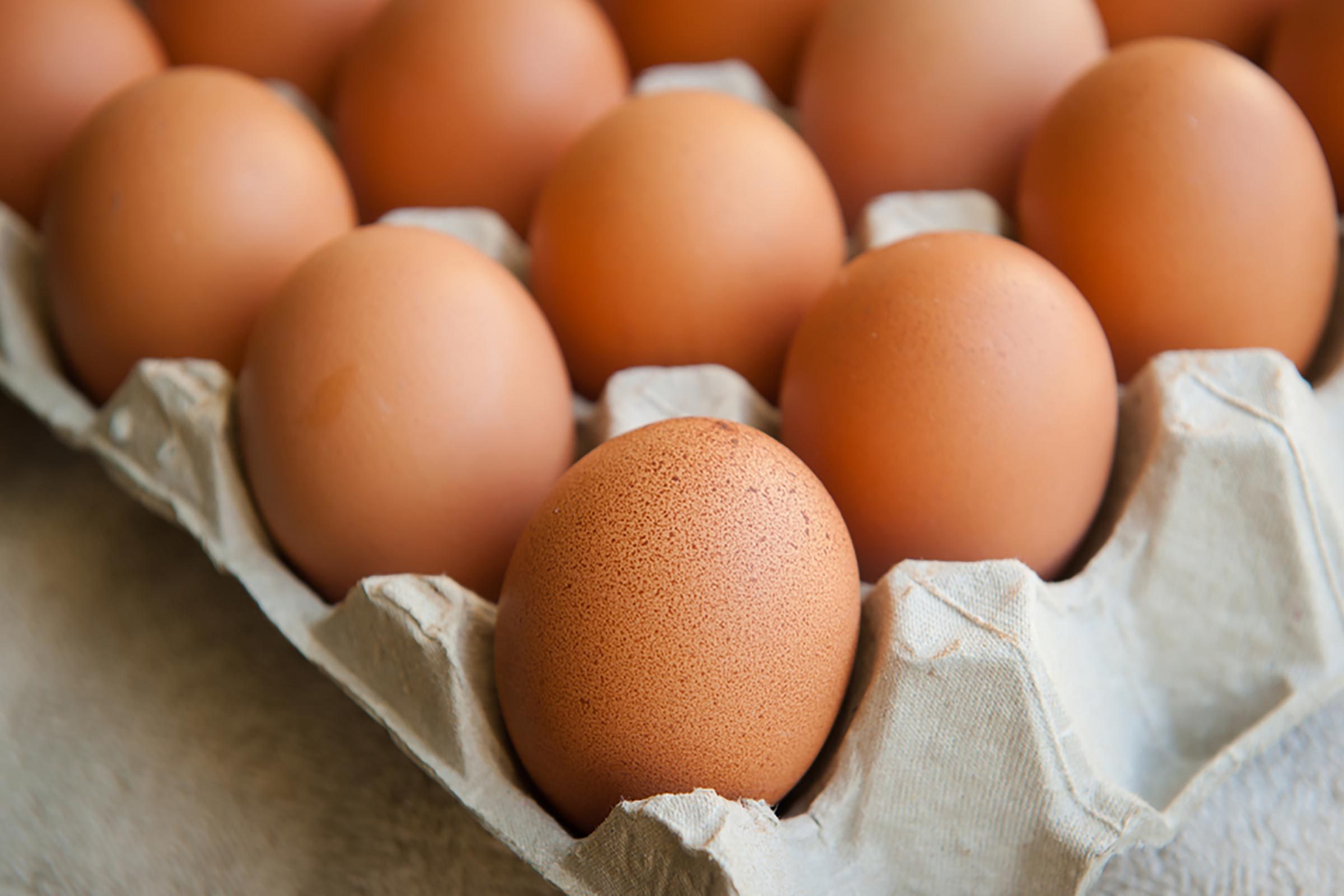
Lean protein
Naturally carb-light, protein usually doesn’t cause digestion issues. But choose lean sources, since many are high in saturated fat, which can trigger inflammation. Try eating more eggs, fish, lean cuts of beef, pork, skinless poultry, seafood, tofu, or tempeh. Here are some other foods that can help ease inflammation.
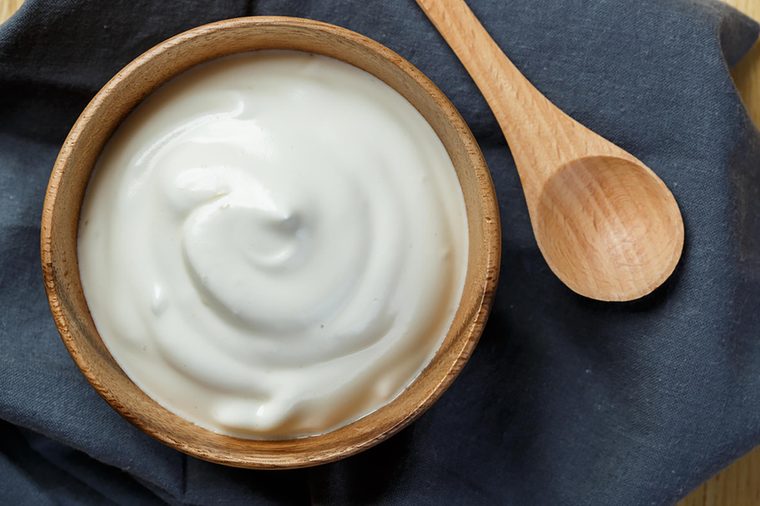
Greek yogurt
It has twice the protein of regular yogurt and less belly-irritating lactose. Don’t miss the 10 ways you can enjoy Greek yogurt for breakfast.
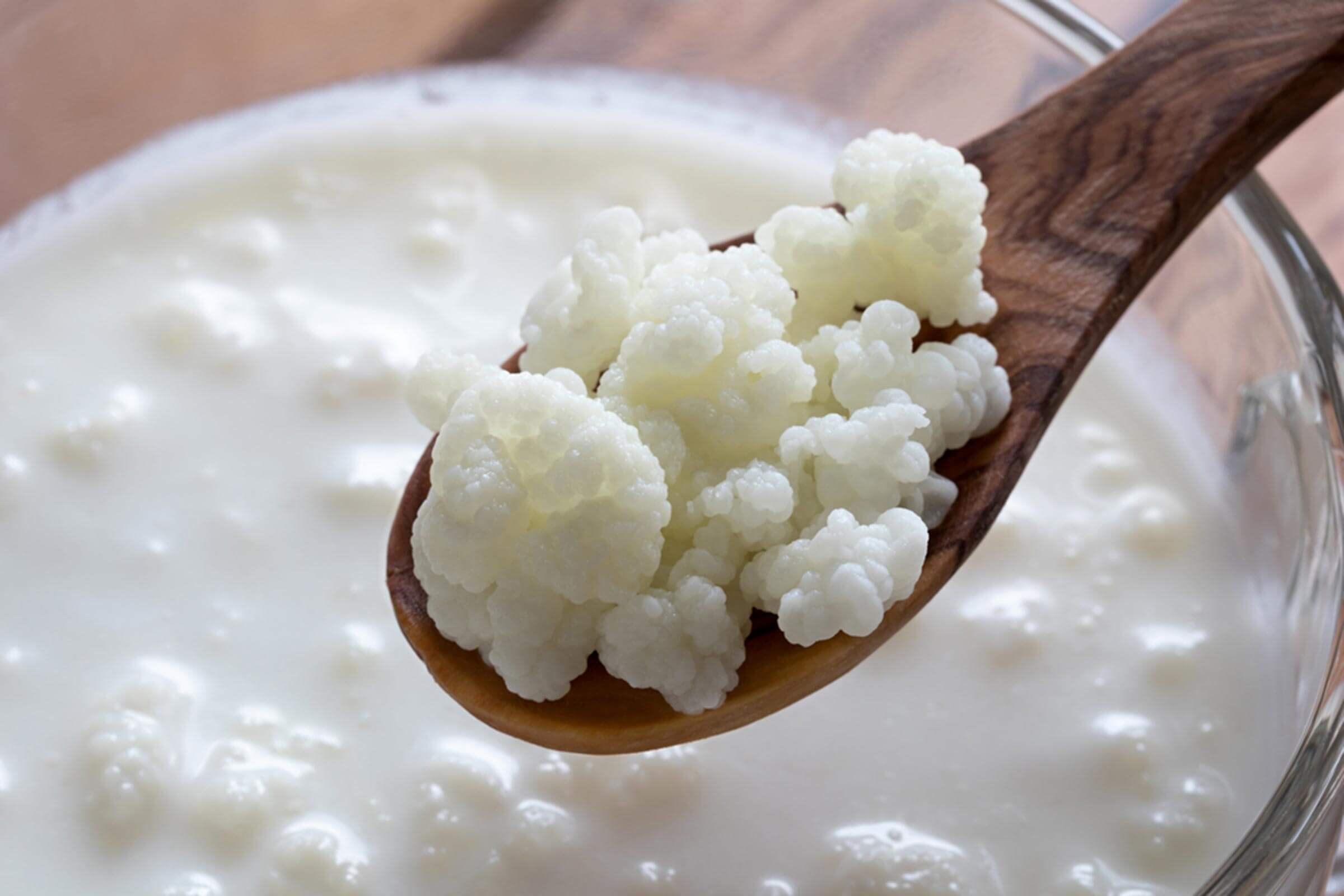
Kefir
You may not have heard of kefir, but you probably should have—it’s packed with probiotics, and it’s delicious. Kefir is a fermented milk drink that’s made with kefir grains, small batches of yeast and bacteria, making it tart with a consistency similar to yogurt. Make sure you’re always reading the ingredients when you buy some, though, because not all kefir is created equal. Some commercial or sweetened brands contain lots of added sugar, which reverses much of its nutritional value.
Want to make your own coconut kefir? We’ve got the perfect recipe.
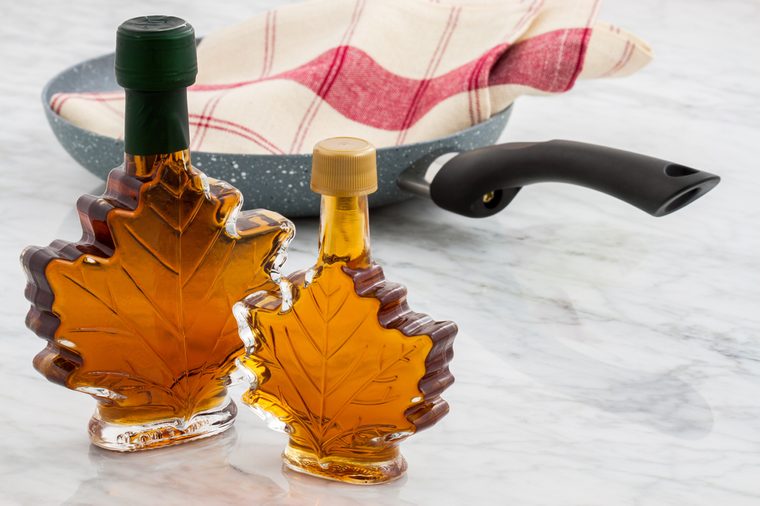
Maple syrup
The most Canadian gut-friendly food! It has the least fructose compared with other sweeteners. You may tolerate maple syrup better than high-fructose honey or agave nectar.
If you’re a fan of maple syrup, here’s why you should give maple water a shot as a post-workout drink.

Fruits with skins
What’s better than a good piece of fruit? A piece of fruit with the skin on it! Many people peel their pieces of fruit, but when they throw away the peel, they’re tossing away some serious health benefits. The skins of apples (These are the surprising health benefits of apples.) and pears in particular are packed with fibre, which can help ease digestion and promote good gut bacteria.
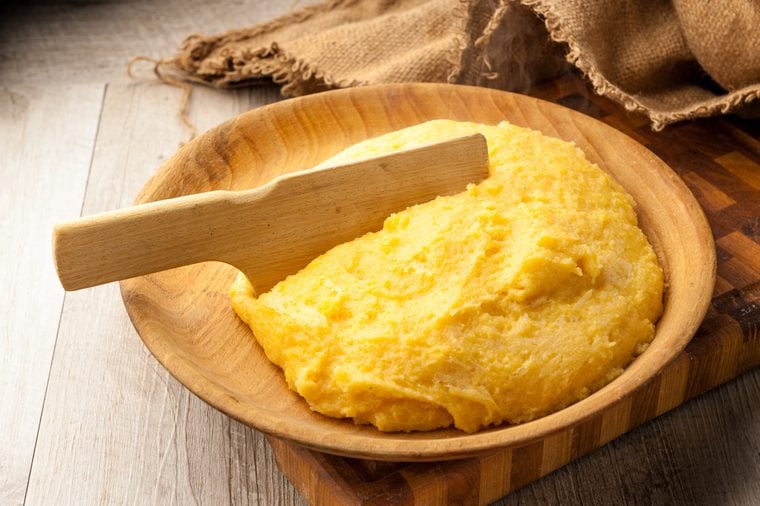
Polenta
This tasty corn dish, best known for its uses in Italian and Mexican cooking, is loaded with the insoluble fibre that your healthy gut bacteria eats right up. It’s a heavy food, though, so try to eat it in fairly small quantities (at least at first) to avoid upsetting your stomach. Here are 10 tips for strengthening your gut bacteria.
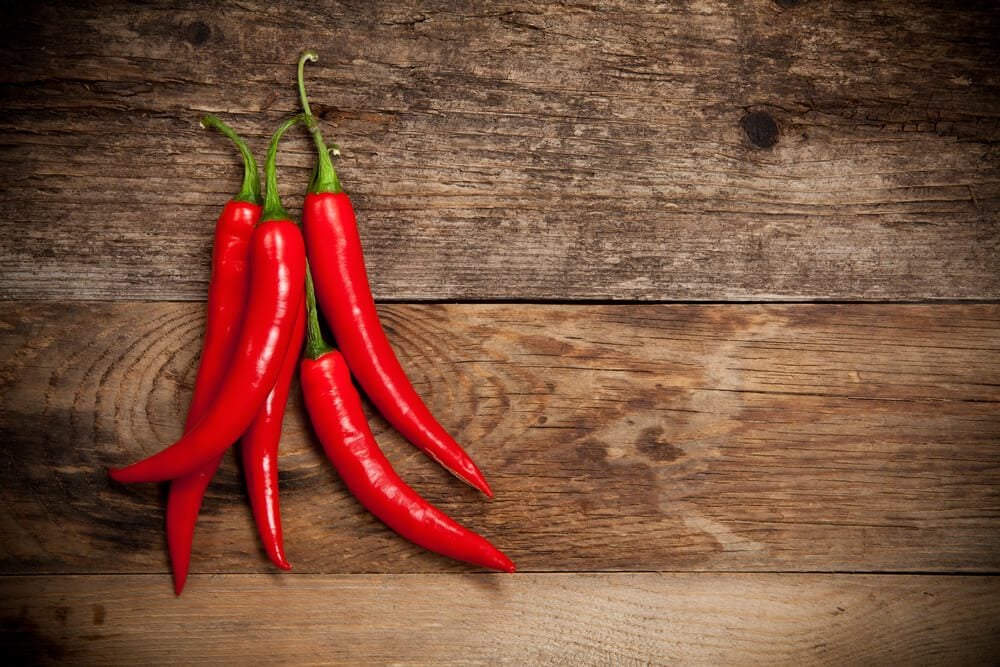
Chili peppers
Go ahead and spice up your meals with a little chili. The capsaicin in chili peppers works to naturally combat cravings, preventing inflammation and weight gain. It can also promote better digestion.
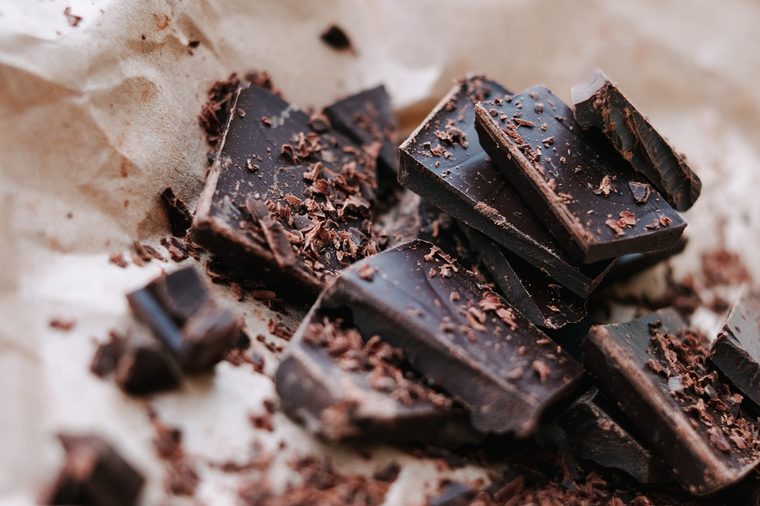
Dark chocolate
Now we’re talking! Eating dark chocolate that contains 60 or 70 percent cacao (or more) can actually help fight weight gain and inflammation. (This no-bake chocolate tart is every chocoholic’s dream.) It also curbs your cravings for sweet things, keeping you from reaching for more sugary desserts. Plus, the antioxidants and flavanols it contains work to fight inflammation (not to mention they’re loaded with all sorts of other health benefits).
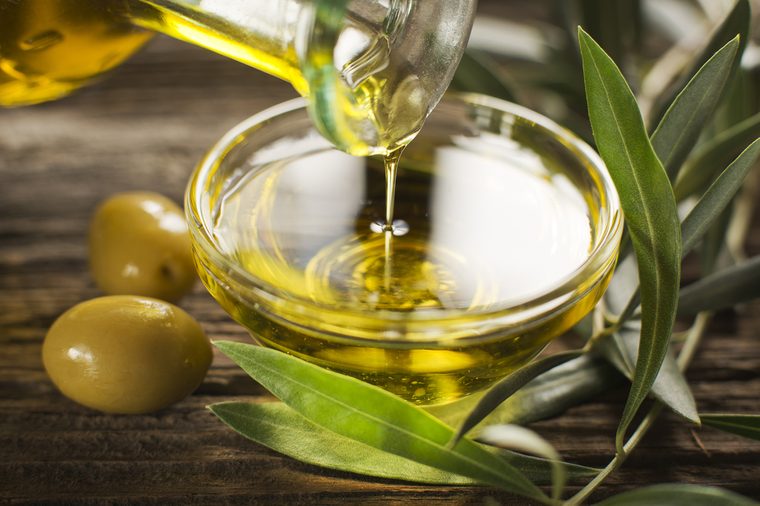
Olive oil
Olive oil, especially extra-virgin olive oil, is a major source of healthy monounsaturated fats, as well as the inflammation-fighting antioxidant oleocanthal. Next, find out how to lose belly fat and the exercises that will make it happen.
